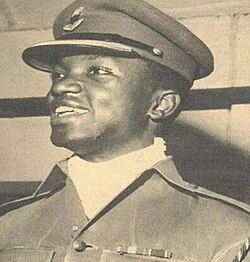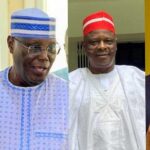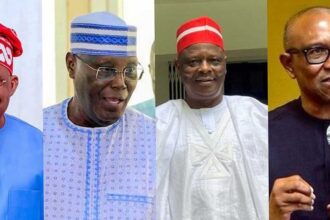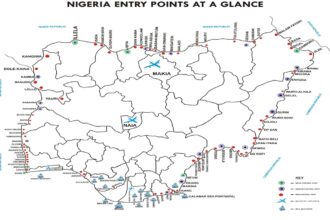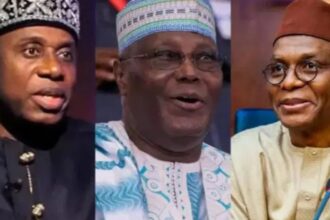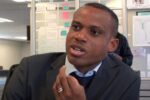By Ernest Osogbue
On the morning of 15th January 1966, a monumental event that would reshape and reconfigure the trajectory of a nation beyond a coup took place in Nigeria. Major Chukwuma Kaduna Nzeogwu of the Nigerian Army, along with his accomplices, executed a coup d’etat, thereby introducing military takeover in Nigerian politics.
Unknown to them and to generations of Nigerians yet unborn, beyond the killing spree which took the lives of many prominent citizens, leaving behind orphans and widows, there was equally the destruction of the soul of a young, vibrant, and promising nation. So much so that almost sixty years after that coup, Nigeria is still reeling from its aftermath, floundering, scrambling, and searching for her essence.
I was watching the very popular American television station CNN sometimes ago, and one of their anchors, Erin Burnett, happened to be interviewing the president of Finland, Alexander Stubb. The subject of the interview was a recent meeting between President Donald Trump and some NATO leaders, including Stubb himself. If you recall, after the Trump-Putin meeting in Alaska, European leaders were eager to receive assurances that President Trump’s agenda on Ukraine was still in alignment with that of NATO.
While part of the meeting was open to the media and was beamed to the world by television, the major discussions actually happened behind closed doors. Erin Burnett wanted to take viewers behind those closed doors to get an insight into what transpired, using President Stubb, as her guide. Information had leaked that during the meeting, President Trump had put a forty-minute call to Vladimir Putin. Erin Burnett, therefore, wanted to know the subject matter of that call.
Throughout the interview, President Stubb showcased his calm and gentle demeanor, with a knowing smile tugging at the corners of his mouth. His reactions portrayed a man who understood the gravity and import of his answers. In the end, he distinguished himself before the CNN anchor and viewers around the world. Without showing irritation at some of the more intrusive questions, he exhibited poise and decorum and even made a joke while at it. The interview ended without him revealing anything more than what should be revealed from such a sensitive diplomatic engagement.
I am usually not a jealous person. But for the first time in a long time, I became jealous of the people of Finland. President Stubb had represented Finland the way a leader should represent his people. He did so with poise, decorum, and integrity. And came off the interview with his head held high.
I was thrown into a state of melancholic introspection after watching the interview. I wondered when my country would produce a leader of such caliber, who would carry himself with dignity and exhibit such knowledge and tact on the international stage. It was then I recalled that prior to the Nzeogwu coup, only persons of knowledge occupied leadership positions in Nigeria. Dr. Nnamdi Azikiwe, Sir Abubakar Tafawa Balewa, Chief Obafemi Awolowo, Sir Ahmadu Bello, Herbert Macaulay, Michael Opara, and Nwafor Orizu, to name but a few. All these men were highly educated and could be said to be the cream of society. People looked up to them as they represented the epitome of knowledge, class, and integrity. They led, and the people followed.
To be fair, Nzeogwu and Co. are not the only coup plotters to emerge from the Nigerian Army. The point, however, is that without Nzeogwu, there may never have been a Murtala Mohammed, Joshua Dogonyaro, Mohammadu Buhari, Sani Abacha, Ibrahim Babangida, Gideon Orkar, and other coup plotters who rose to prominence. When Nzeogwu and his accomplices struck on that January day in 1966, they threw knowledge overboard and inadvertently opened the door for copycat coup plotters to follow in their wake. Since then, persons not versed in political leadership, who lacked the background of research, and how to solve knotty problems began to rise to leadership. This scenario did not happen overnight. It was slow and steady.
For instance, when Obasanjo midwifed the 1979 democratic transition, intellectuals were still very much in play in the political space. Men like Aminu Kanu, Obafemi Awolowo, Nnamdi Azikiwe, Shehu Shagari, Ibrahim Waziri, Tunji Braithwaite, and many others participated. It was not until Buhari, Babangida, and Abacha, who exhibited a disdain of the political class and intellectuals that the rot really set in. Between them, these three military officers oversaw the decimation of the intellectual class as politicians. They banned, unbanned, and finally coined a new terminology in Nigerian politics; Newbreed Politicians. While some jubilated at the advent of the newbreed, many years after, we now know that there was nothing new in the newbreed, but that it was only a ruse to scheme intellectuals out of politics and enthrone a band of marauding, unscrupulous, and rapacious agberos as leaders. Between them, Buhari, Babangida, and Abacha detested the soft-spoken and wily intellectual. Perceiving him as weak, corrupt, and deceitful. In his stead, they welcomed the rugged, aggressive, and uncompromising politician who was more like themselves. That is how Nigeria arrived at the present leadership conundrum.
Rather than being at the forefront of leadership, the intellectual has now been shoved behind by the aggressive, and vulgar attitude of the newbreed politician. Agberos have taken the place of well-groomed and cultured men and women. Bread and butter is now more important than ideas and ideals. An intellectual can now shamelessly campaign for an agbero to be the leader, while he stands back as a hype-man. It is on record that Nigeria is the only country where a professor of law would accept to be vice president to a man whose graduation from secondary school remains a subject of speculation.
This is the paradox of Nigeria as handed down to us by coups and counter coups. Instead of having leaders in the mold of Alexander Stubb of Finland, who will represent Nigeria with poise, elegance, and decorum, what we have are persons who struggle to put their ideas across. Persons who shy away from the local media and are averse to facing the international press. Our society is no longer a place where ideas thrive, but a place where only the strong survive. Persons who lack the intellectual and moral capacity to design a new Nigeria have taken charge. Nigeria is now the proverbial kingdom where princes go on foot while beggars ride on horseback.
As it stands, anything can happen. An uncouth person grounded in the aggressive and manipulative politics of the day could rise to leadership. It would require a seismic shift of monumental proportions to enthrone persons of high intellect and class back in leadership in Nigeria. And that is the greatest tragedy of our nation. We’re still a long way from El Dorado. All thanks to the first gunshot fired by Nzeogwu on the morning of January 15th, 1966.

